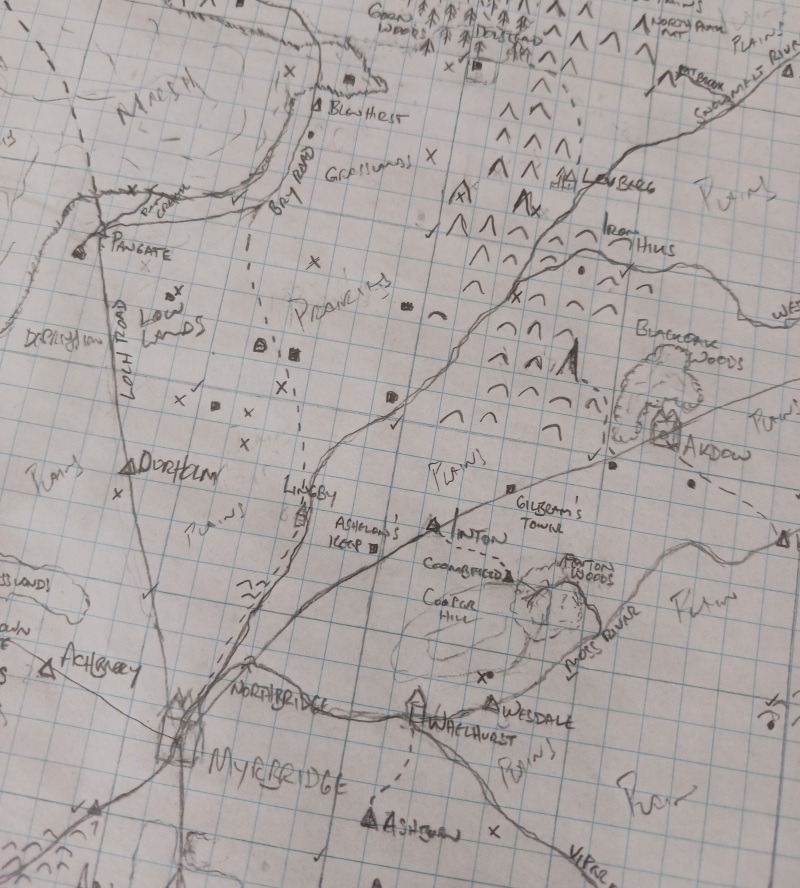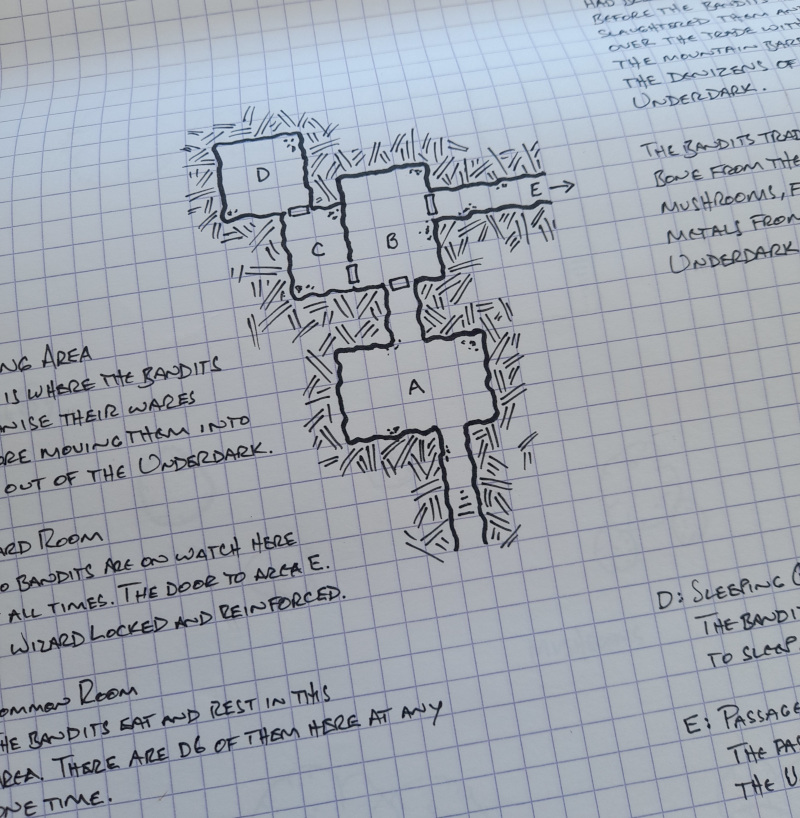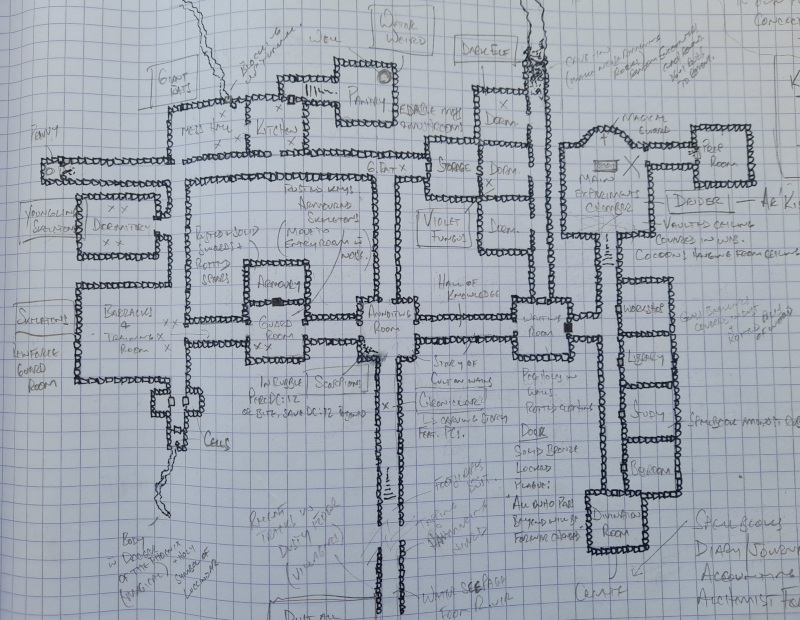
Dungeons & Dragons (D&D) has evolved a lot since it first emerged in the 1970s, but despite all the fancy apps, virtual tabletop tools, and digital aids, one thing remains constant: D&D is, at its heart, a pen-and-paper game.
And it always will be.
Why?
Because what makes D&D special has more to do with imagination and the social, creative experience than anything that technology can replicate.
The Magic of Analogue D&D
First, there’s something special about sitting around a table, with friends or strangers, dice clattering on a surface, and character sheets scribbled with notes, eraser marks, and quick sketches.
It’s tactile, messy, and real.
The act of flipping through the pages of a rulebook or scrawling down the loot from a treasure chest feels like you’re on an adventure—this tangible interaction with the game helps you engage in a way that apps or a glowing screen never will.
Pen-and-paper D&D invites mistakes, flexibility, and creativity in a way that digital platforms just don’t.
When you’re drawing a map on a scrap of paper, it’s not about perfection. It’s about capturing the essence of the world you’re creating together. The imperfections are part of the charm.

Total Freedom & Infinite Imagination
D&D’s core appeal is freedom.
You can do anything—sneak past the guards, jump out a window, try to befriend the dragon—and it’s all decided by rolling dice and a few scribbles on your character sheet.
The beauty of an analogue game is that it’s limited only by your imagination and the creativity of your Games Master (GM).
No matter how advanced virtual tools become, they’ll never replace the limitless potential of a human brain.
Video games or apps have rules and boundaries coded into them, but the magic of D&D is that, with pen and paper, you can break rules.
The DM can improvise, the players can change the entire direction of a campaign, and the game can go places no one expected.
That freedom is harder to grasp when you’re staring at a screen with pre-programmed options.
The Social Experience Matters
Sure, you can play D&D online (hell, I am about to start two online campaigns), and it’s awesome that tools exist to help people who live far apart share adventures.
But when you’re physically at the table, the energy is different.
There’s a reason D&D has persisted as a tabletop RPG for decades—because it brings people together in a way that no video game or app can fully replicate.
The pauses while someone tries to figure out what to do next, the quiet anticipation when dice are rolling, the spontaneous laughter when plans go hilariously wrong—these little moments create a shared experience that feels more genuine when it’s not mediated by a screen.
It’s about reading body language, reacting to each other in real time, and immersing yourselves in the moment.

Rolling Real Dice Is Just Fun
Rolling physical dice, especially when you get to toss a massive handful for an epic fireball or saving throw, has a certain visceral satisfaction.
There’s a sense of drama when you see the dice tumble across the table, wondering if you’ll get that natural 20 or fail miserably with a natural 1.
Digital dice just don’t compare—they feel sterile, with the results popping up instantly. There’s no suspense, no weight behind them.
In contrast, the weight of real dice in your hand is part of the ritual, part of the magic.
Customizing Your Game
Pen-and-paper D&D is endlessly customizable.
People create homebrew content, customize their character sheets, and even make their own rules.
Sure, you can modify online tools or use custom settings in digital platforms, but it’s much easier—and somehow more fun—when it’s all on paper.
If you want to tweak a rule, you just do it. There’s no need to code anything or fiddle with complicated menus.
You can scratch out notes in the margin, draw your own maps, and make the game your own in a way that feels personal.

Tradition and Nostalgia
For many players, myself included, D&D’s pen-and-paper nature is part of its charm and tradition.
The nostalgia of flipping through dog-eared rulebooks, the smell of pencil shavings and the books themselves, and the sound of dice hitting the table are all part of the visceral experience.
D&D’s history is tied to its analogue roots, and even though it’s adapted to modern times, that connection to the past is something people love.
Playing D&D the old-school way, with paper and dice, feels like tapping into a shared heritage of storytelling that goes back decades.
The Future of D&D
Will D&D continue to have a place in the digital world?
Absolutely.
Virtual tabletops, digital tools, and online communities have made the game more accessible and inclusive.
But no matter how far technology advances, the core of D&D will always belong to the analogue world.
There’s a magic in creating worlds, telling stories, and rolling dice together that transcends technology.
That’s why, even with all the apps and screens at our disposal, we’ll keep coming back to that humble, old-school setup of pencils, paper, and a set of dice.
Because in the end, D&D isn’t about the tools you use. It’s about imagination, connection, and the stories you tell together.
And for that, pen and paper will always be enough.
While You’re Here…
Since 2021 I have been publishing d12 Monthly, a monthly zine, which has a ton of articles for any edition of Dungeons and Dragons.
Printed copies are available in my store. The PDF is available on DriveThruRPG and you can get both, plus support my work, via my Patreon.
I will also be releasing some more products in the near future.
Feel free to reach out to me on Twitter or my contact page any time.
